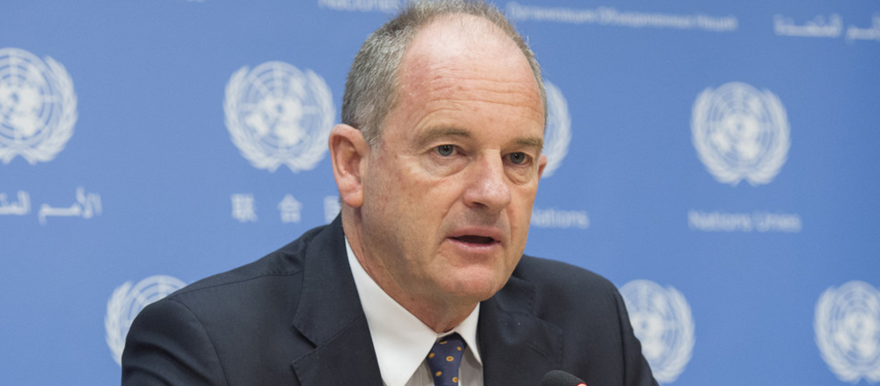David Shearer, the head of the United Nations Mission in South Sudan(UNMISS) who also doubles as the Special Representative of the Secretary-General, yesterday during a briefing to the United Nations Security Council (UNSC) said the implementation of the peace agreement was lagging.
Shearer said, “The Transitional Security Arrangements that are aimed at unifying the security forces are stalled and leaving combatants in training centers often without adequate food and shelter.”
“The dispute over the proposed governorship of Johnson Olony in Upper Nile, Malakal – the only governor yet to take up office – is being used now to halt the appointment of county commissioners who are an essential part of local government,” Shearer added.
The UN chief reported that the absence of county commissioners leaves a local vacuum of power, which makes it difficult to curb brewing intercommunal violence.
“Momentum in South Sudan’s peace process is linked to the strength of international engagement. However, attention by member states in the Horn is understandably directed elsewhere, contributing to the sense of drift that people are frequently remarking upon. Nevertheless, collectively, we still need to remain focused on South Sudan and guide the peace implementation,” Shearer urged.
The UNMISS head said he was pleased to report that some progress has been made and that through compromise, parties have successfully formed a transitional government, led by President Salva Kiir with First Vice President Dr. Riek Machar.
“All states and county positions have been allocated, and nine out of the 10 governors are in place. The Council of Ministers is meeting, and most national institutions are functioning, at least on a basic level. These achievements are to be commended,” he said.
According to Shearer, this year more than 2,000 civilians have lost their lives during the local-level conflict, which is being weaponized and turbocharged by external actors acting in their own economic or political interests.
“In this last quarter, violent incidents dropped by 64 percent compared to the previous quarter, but as the dry season approaches, we are preparing ourselves for a possible resurgence of volatility,” he warned. “Several underlying factors have created a “perfect storm” for those already facing hardship.”
“There is acute food insecurity that’s affected half of the population. It's driven by displacement from conflict and severe flooding which is affecting around a million people with the loss of livestock and crops.
There is a worsening economic situation due to COVID-19. And that’s all on top of the existing pervasive poverty,” he added.
The UN boss said the dry season exacerbates these problems, “Farmers and pastoralists, having lost crops and cattle, often seek to recover those assets through violent raids on owners. There’s competition for scarce resources, like grazing land and water, which also become points of tension between farmers and cattle herders during migration.”
“Anticipating this, we have established five new temporary bases in conflict hotspots in line with our “proactive, robust and nimble” approach to peacekeeping and peacebuilding,” Shearer said.
He said the UN’s integrated military and civilian teams are in place right now to deter violence and support reconciliation so communities can reach an agreement to peacefully co-exist.
Shearer reported that the South Sudan government’s refusal to enable the mission access to many areas during the year has hampered their work considerably.




